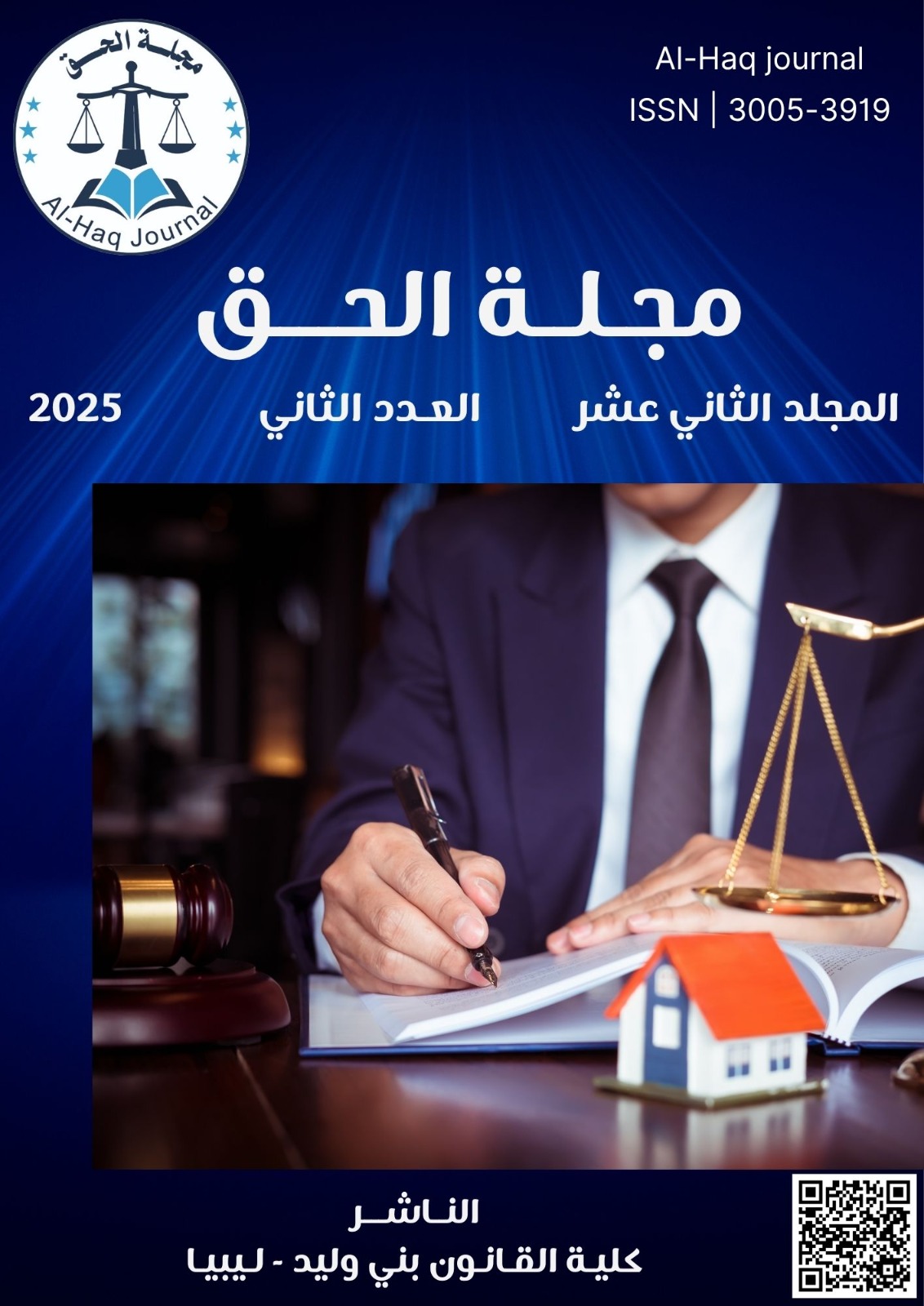The Right to Elections Between International Covenants and Libyan Laws
DOI:
https://doi.org/10.58916/alhaq.v12i2.353Keywords:
Libyan laws, electoral integrity, The right to vote, international conventions, political participationAbstract
The right to vote is a fundamental right guaranteed by international conventions and national laws, reflecting the principle of popular sovereignty and participation in government. International conventions, such as the Universal Declaration of Human Rights (Article 21) and the International Covenant on Civil and Political Rights (Article 25), affirm the right of everyone to take part in the government of their country, directly or through representatives chosen in free and fair periodic elections by universal and equal suffrage. These conventions emphasize the importance of secret voting and guaranteeing the free expression of the will of the electorate without discrimination. In Libyan law, the regulation of this right has evolved through several electoral laws since independence. For example, Election Law No. 6 of 1964, General National Congress Election Law No. 4 of 2012, and Law No. 2 of 2021 on the Election of the House of Representatives all stipulate specific conditions for exercising the right to vote, such as Libyan citizenship, reaching the legal age (usually 18 years), legal capacity, and registration in the voter registry. These laws also include controls to ensure the integrity and secrecy of the electoral process, as well as penalties for violations. Although Libyan laws generally conform to international standards in recognizing this right, the practical implementation of elections in Libya has faced significant challenges, including security conditions, logistical challenges, and political disputes that have at times affected the continuity and integrity of the electoral process. This confirms that the existence of a legal framework alone is not sufficient to ensure the effective exercise of the right to vote. Rather, a stable environment, strong institutions, and a genuine commitment to the principles of democracy are required.
Downloads
References
.
Downloads
Published
Issue
Section
License

This work is licensed under a Creative Commons Attribution-NonCommercial 4.0 International License.









